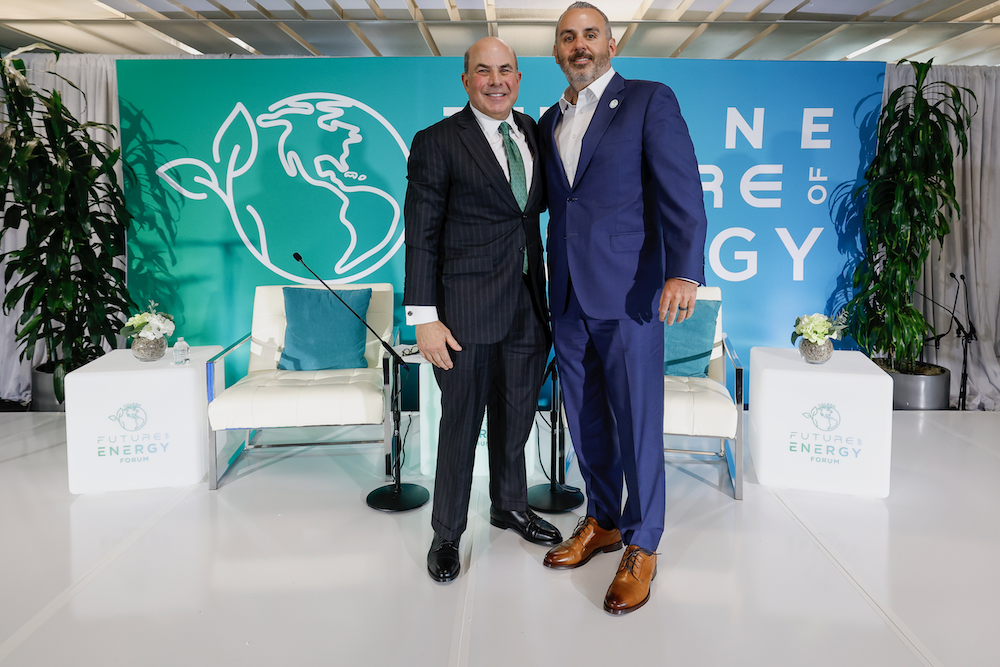Tulane forum spotlights cross-disciplinary energy leadership
The world’s energy future depends on collaboration across law, business, research and public policy. That spirit of breaking down silos is central to Tulane University’s approach and was the driving theme of its Future of Energy Forum in September, where two distinguished alumni and leading energy experts underscored the urgency of working together.
Randall Ebner (Law ’80), retired vice president and general counsel at ExxonMobil, and Alan Templeton (Business ’02), CEO of DCOR, California’s largest offshore oil and gas producer, shared their common perspectives with an audience on the importance of, and the school’s commitment to, an integrated energy education during the conversation.
“It’s really our responsibility… to help educate and create a balance of knowledge, factually based, objectively based, as to all the above when it comes to this industry, not only for today, tomorrow, but for the long term,” Ebner told the audience.
Templeton, who shared his journey from political science major, to A. B. Freeman School of Business graduate, to CEO, underscored why students can no longer afford to stay in disciplinary silos. “You've got to be versatile these days. Energy industry, no matter which one you go to, is problem solving… The days of being an engineer and just being an engineer… or being a finance person… and just staying siloed, I think those are done.”
The two leaders brought distinct but complementary perspectives. Ebner is a transformational donor who was instrumental in establishing the Tulane Center for Energy Law, which has now become Tulane’s Energy Law & Policy Center. He drew on decades of legal and corporate leadership in one of the world’s largest energy companies for the discussion. Templeton, whose family recently donated $1.5 million to the Freeman School to name the William M. Templeton Trading Center, spoke from the front lines of navigating California’s ambitious decarbonization policies.
Templeton described how his company learned to adapt to one of the toughest regulatory climates in the country. “We kept our head low, we worked with our regulators, and we’ve been able to survive and grow [into] the largest offshore operator in the Pacific,” he said. He added that despite political pressures, “energy transition in California is being driven far more by supply and demand fundamentals than by dramatic political shifts.”
That interplay between governance, markets and industry realities is exactly the kind of conversation Tulane wants students to absorb, said Ebner. His vision for the Forum has always been to create a national hub for fact-based dialogue on energy. “I always had a vision of Tulane becoming a leading hub for U.S. and global interdisciplinary energy conversations,” Ebner said. “That is why I have chosen to sponsor this event personally every year.”

